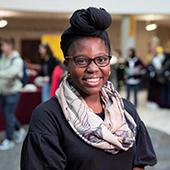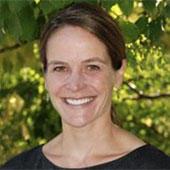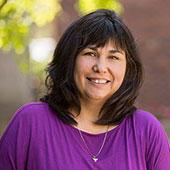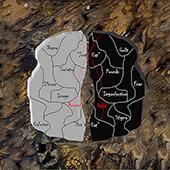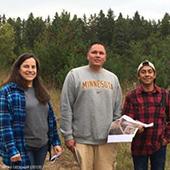- June 11-12 - Board of Regents meeting.
- Features: Mapping prejudice: A painful part of Minneapolis history; A powerful voice for change.
- People: Mary Chesney has received the Loretta C. Ford Distinguished Fellow Award; and more.
June 11-12 - Board of Regents meeting
At its June meeting, the University of Minnesota Board of Regents will discuss President Joan Gabel’s recommended framework to resume in-person instruction and reopen residence halls, dining facilities, and other campus services for fall semester. Each system campus will be able to adapt the plan for individual students, faculty, and staff to accommodate local and personal health concerns or other challenges. Regents are also expected to act on COVID-adjusted operating budget recommendations for FY21, the systemwide strategic plan, and the recommended FY21 capital improvement budget. See the news release for more details.
Mapping prejudice: A painful part of Minneapolis history
In recent days, the University of Minnesota’s Mapping Prejudice Project has taken on renewed importance, as it provides a foundation for understanding the history of racism in the Twin Cities and its social and economic effects. The project has uncovered, documented, and mapped the systematic use of property deeds to enforce racial segregation in the Minneapolis area.
A powerful voice for change
A powerful voice for change with a passion for helping others, Ifeoluwa “Ife” Ekunsanmi is the 2020 winner of the Tomato Can Loving Cup award, the most prestigious award the Carlson School of Management can bestow on an undergraduate student. She was named the recipient as part of the University-wide virtual commencement ceremony on May 16.
People
Mary Chesney has received the Loretta C. Ford Distinguished Fellow Award from the National Association of Pediatric Nurse Practitioners; Medical School faculty help earn designation as “Sarcoidosis Center of Excellence”; U in the News features highlights of U faculty and staff cited in the media. People
The Killing of George Floyd: A Statement from the University of Minnesota Human Rights Community
As of its release on June 8, a statement sponsored by the University of Minnesota Human Rights Community has been endorsed by more than 4,000 University of Minnesota faculty, staff, and graduate students. The statement reads in part, “The University of Minnesota Human Rights Community mourns the killing of George Floyd, denounces the systemic inequalities and discrimination in our community, and calls for the equal protection of the human rights of all.”
University of Minnesota Press announces ‘Reading for Racial Justice’ open access
The University of Minnesota Press has collaborated with its authors to release an open access collection of antiracist books, available to read online at no charge through Aug. 31. The books and their authors included in the “Reading for Racial Justice” collection challenge white supremacy, police violence, and unequal access to criminal justice, education, and resources in Minnesota, the United States, and throughout the world.
U of M trial shows hydroxychloroquine has no benefit over placebo in preventing COVID-19
University of Minnesota Medical School researchers recently published the results from the first randomized clinical trial testing hydroxychloroquine for the post-exposure prevention of COVID-19. The trial results, which were published in the New England Journal of Medicine, determined that hydroxychloroquine was not able to prevent the development of COVID-19 any better than a placebo.
CIDRAP recommends a tailored approach to contact tracing
Contact tracing—in which officials contact those who were likely exposed to an infected person to potentially test, isolate, or quarantine them—is a cornerstone of outbreak response and has been cited by many as essential to slowing the spread of COVID-19. But, according to a new report from the Center for Infectious Disease Research and Policy (CIDRAP), contact tracing, like other pandemic response tools, must be done strategically.
Inflammation markers in liver may predict outcomes for COVID-19 patients
Two researchers are hoping to collect valuable data for COVID-19 by studying inflammation markers in patients’ livers. The data could help predict liver failure as well as other patient outcomes that are correlated with liver damage.
Using neuroimaging to find better treatments for substance abuse
Jazmin Camchong and Anna Zilverstand, both assistant professors in the Department of Psychiatry and Behavioral Sciences at the University of Minnesota Medical School, have been using neuroimaging research to try to inform brain-based treatments for substance abuse.
Researchers demonstrate weaker neural suppression for those with autism
Michael-Paul Schallmo studied why people with autism spectrum disorder (ASD) may experience sensory hypersensitivity. His team’s study found that differences in visual motion perception in ASD are accompanied by weaker neural suppression in the visual cortex of the brain.
Simple cognitive tests could help primary care clinics spot Alzheimer’s cases
A team from the School of Public Health’s Evidence-Based Practice Center identified tests that providers can use to distinguish between Alzheimer’s dementia and normal cognition in older adults.
Impact Medicine: The fight against COVID-19
In light of the COVID-19 pandemic, the U of M Medical School continues to highlight individuals who have risen to the occasion to improve the situation in Minnesota and across the globe. Read their stories at Impact Medicine.
Research Brief: Recommendations to eliminate COVID-19 racial and ethnic disparities in long-term care facilities
Associate Professor Tetyana Shippee led a study that recommends improving COVID-19 testing, personal protective equipment access, and other measures in facilities with high proportions of minorities.
June 15-Aug. 7 - Summer of EngageMNt
The University of Minnesota's Summer of EngageMNt provides remote volunteer opportunities for undergraduate and graduate students from across the University system to respond to present and emerging needs of Minnesota communities affected by COVID-19 and the aftermath of George Floyd's killing. Students will be matched with community partners to work on service activities that address a broad range of societal issues; training will be provided as needed. The initiative is coordinated by the Office for Public Engagement, in collaboration with the Center for Community-Engaged Learning and the University COVID Action Network.
July 23 - Cultivate Inclusion
Every member of the University community can take action to enable equitable access in the digital spaces where we study, work, and connect. Attend the Cultivate Inclusion kickoff event for an overview of digital accessibility, why it's important for personal, cultural, and professional growth, and to learn about University resources. 9 a.m.-noon.
U of M featured virtual events
June 11 - Micrometeorite Hunter
June 12 - An Indigenous Perspective of Co-Occurring Disorders
June 17 - Master Your Strengths and Boost Resilience
June 17 - Origins of COVID-19 & Other Zoonotic Diseases
June 18 - The Pandemic Indemnity Claims Under Public International Law and U.S. Law
Minnesota Mondays
A new five-week, virtual, on-demand weekly series will touch on regional agricultural-based content, sharing basic concepts in science, food, and agriculture. This series is open to all youth and families.
The benefits of nature play
Research by Professor Julie Ernst, Department of Applied Human Sciences, suggests that children enrolled in nature-based preschools have higher levels of creativity, problem solving, and persistence than children in play-based, non-nature preschools. Her research project, "Young Children’s Contributions to Sustainability: The Influence of Nature Play on Curiosity, Executive Function Skills, Creative Thinking, and Resilience," was recently published in a special edition of Sustainability.
Providing care to tribal communities
Mary Owen, assistant professor and director of the Center of American Indian and Minority Health on the Medical School’s Duluth campus, is working with her team to provide resources and care to Native American communities during COVID-19. Owen’s team has partnered with two Native American-owned locum companies that are helping to match physicians and healthcare professionals to tribal communities who are experiencing significant need during the pandemic.
Meatpacking towns face unique COVID-19 threat
Arne Kildegaard, professor of economics and chair of the social science division, spoke with KSTP regarding challenges facing Minnesota cities that rely heavily on meatpacking facilities to support the local economy. Former director of the Center for Small Towns, Kildegaard is an expert on environmental and natural resource economics, the economics of renewable energy systems, and economic development.
Alumnae create a scientifically informative and artistic depiction of a mental health challenge
UMR alumnae Nitya Chandiramani and Rebecca Houston collaborated with Associate Professor Carol Peterson and Assistant Professor Ann Haynos from the University of Minnesota Medical School Department of Psychiatry to create "Dichotomous Mind," a visual work that captures the mechanisms of the human brain impacted by anorexia nervosa and how this disease is experienced in the human mind and body.
Landscapes of Hope
For over 20 years, Tasoulla Hadjiyanni, Northrop professor and program director of interior design, has been advocating for Culturally Enriched Communities. In March, as the pandemic disproportionately affected communities of color, she began collecting environmental interventions to COVID-19 that could aid stay-at-home and reopening guidelines. More recently, she has created Landscapes of Hope, a resource with buildings and places around the Twin Cities that elaborates on how the built environment can help pave the way for social and racial justice.
Community-University Health Care Center organizes food and product donations
The Community-University Health Care Center recently organized a second day of food and product donations in the Franklin/Hiawatha neighborhood. Staff, volunteers, and partners were able to distribute needed food and items to over 300 community members.
Nature-based play and design
Early interaction with nature has been proven to increase children’s capacity for creativity, critical concentration skills, and relationship building. Through a research assistantship with the Central Regional Sustainable Development Partnership and the Center for Urban and Regional Affairs, landscape architecture student Jordan Hedlund sought to harness these advantages by co-designing outdoor programmed space with Leech Lake Early Childhood Development.

